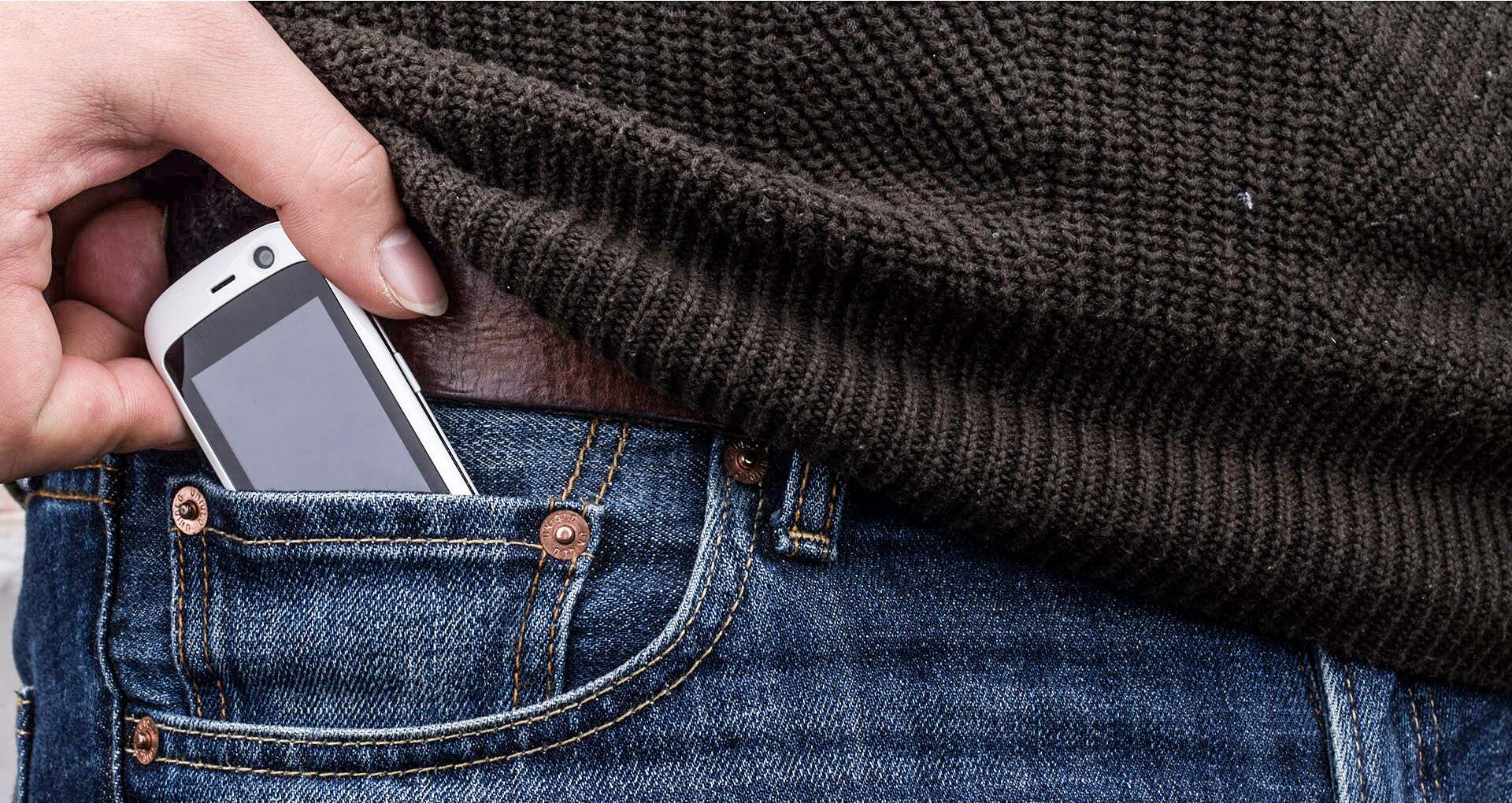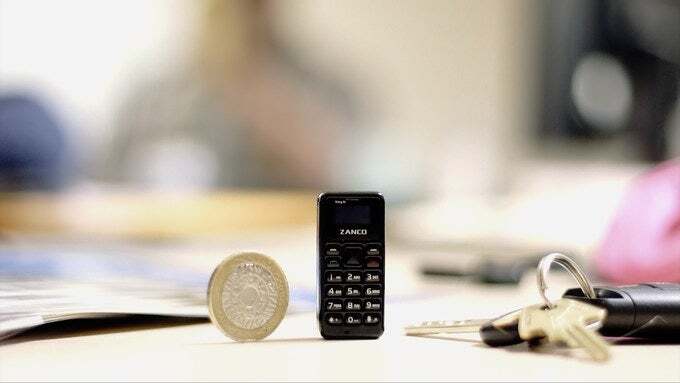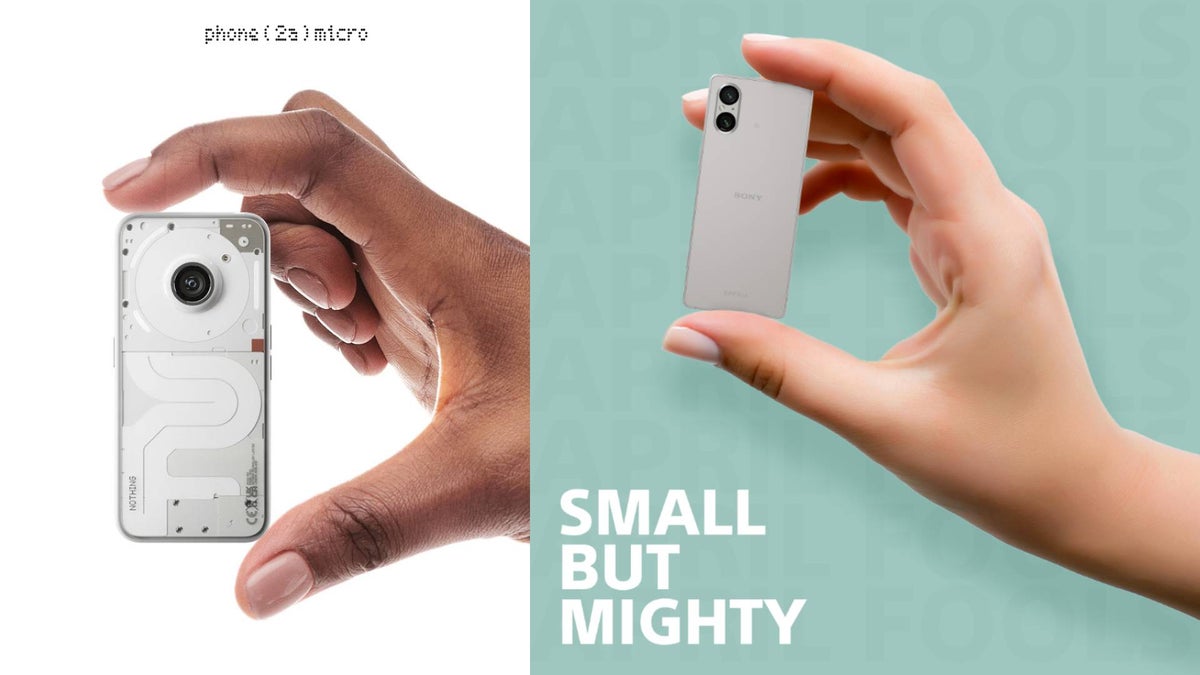I’m sure he meant that small phones – once beloved and cherished – are doomed to make a comeback at a point in time. The time is now!
What does Nietzsche have to do with Nothing?
This very Monday, April 1, two brands (Sony and Nothing) came up with the same idea for April fools’ – a phone that’s smaller than a credit card, yet large enough not to be swallowed accidentally.
Here’s Nothing’s April 1 prototype. They call it the “Phone (2a) Micro” and present it with the “Size doesn’t matter” slogan:
Here’s Sony’s April 1 prototype. It’s dubbed “Xperia 5 V micro” and they say it’s “Small but mighty”:The Sony team goes a step further: “This pocket rocket of a smartphone has a tiny camera that packs a punch”, adding that “actual size may vary”.
Joke’s on you, Sony. Also on you, Nothing. For fans didn’t fall for your knee-slappers; they fell in love with the idea of a micro-phone.
Not a microphone, but a micro-phone

I’m not exaggerating when I say that people love the idea. Both Nothing’s and Sony’s X/Twitter posts are chock-full of people who are mesmerized by the prototypes. Also, among the “I need this in my life” type of comments, many do claim they’d buy these devices in a heartbeat.
Here are some of the comments:
I know it’s April fools but I’ll buy it immediately.
— manaf (@manaf_hashimi) April 1, 2024
Jokes on you, many would buy it.
— Szabó Béla (@Hun_Bela) April 1, 2024
This is just April’s fools nonsense, but if it was real, and not stupidly overpriced, many would go for it. Phone makers nowadays like to pretend that anyone wants a freaking phablet in their pocket.
— Luís Pinto (@luispinto23) April 1, 2024
Why is this a joke and not reality? Screw the lack of market demand. I want this exact thing.
— Nathan (@slightlyusedpsx) April 1, 2024
Remember the small phones of the 2000s?
(and how we betrayed them with our current 6.8-inch bricks)
Ah, small phones. No touchscreen, no quadruple camera bumps on the back, no 6,000 mAh capacity batteries. Do you remember them… and how cool they were? Under “cool 2000s person” in the dictionary, there’s a photo of a gal (or a lad) with a Nokia 8210 (or a Motorola Razr V3).Maybe you do remember the bite-size phone craze, but probably you don’t, especially if you’re under 30.
Having a late 1980s, 1990s phone (even one with a built-in battery) came in handy if you got to defend yourself – these things were hard and heavy! But, as troublesome as the 1990s were, it was simply not very practical to carry around such a brick in your pocket.
With technology evolving by the day, it was only natural that chips (and handsets) got more and more compact and having a humongous phone was no longer a status symbol. Suddenly, you were way cooler if you rocked the smallest possible phone out there. The compact form-factor was a symbol of cutting-edge technology.
In the 2010s, the trend shifted dramatically toward larger screens to accommodate advanced features like internet browsing, social media, and video streaming. We betrayed the idea of phone compactness. Which isn’t so bad – 6.8-inch screens are glorious, if you don’t have a laptop or computer, or a tablet.
Compact and small phones are still being made, but they’re substantially bigger than their predecessors. Also, they’re huge in comparison to Nothing’s and Sony’s April 1 prototypes.
Okay, not so small!
If you need to test your limits and your sanity, you can do so with the Zanco tiny t1, what’s perhaps the world’s smallest mobile phone.


This handset (that’s probably too big of a word for this prisoner-tailored phone) weighs 13 grams (0.46 ounces). It has a 200 mAh battery that lasts for more than 3 days on a single charge. It packs a 0.49-inch OLED display (hehe!) with 64 x 32 pixels resolution.
It comes with a numerical keyboard, but you need surgeon precision to type with a 100% accuracy on it.
Though this product is real and can be bought for approximately $50, let’s get real and talk about the micro prototypes from Nothing and Sony. Which aren’t real. But it’s Friday, so it’s okay.
So, what are the Pros and Cons of Nothing’s and Sony’s micro-phones?
Before I get to the point of how AI could actually help to get this prototype out of fantasy land and into the real world, let’s discuss what are the positives and negatives of a phone this petite:
Pros of a bite-sized smartphone:
- Portability (duh!): The most apparent advantage would be its exceptional portability. A device that fits easily into a large wallet, tiny pocket, or small purse would be highly convenient for people on the go. Also, it’s going to be extremely lightweight!
- Minimalism: For those seeking to declutter their lives and minimize distractions, a smaller device with limited screen real estate could encourage less time spent scrolling and more engagement with the world around them.
- Innovative design: Both prototypes are cute. Creating a phone this small would push the boundaries of current technology, potentially leading to innovations in miniaturization that could benefit other devices and industries.
Cons of a bite-sized smartphone:
- Limited functionality: The small size would severely restrict the phone’s capabilities, especially in terms of screen size for apps, web browsing, video streaming, and gaming. Input methods (like typing on a tiny screen) would also be challenging.
- Battery life: Miniaturization could significantly impact battery size and, by extension, battery life. A smaller device might struggle to power through a full day on a single charge, given today’s usage patterns. The only solution here is a battery revolution.
- Durability and ergonomics: The device’s small, thin profile could make it more susceptible to damage from bending or dropping. Additionally, holding and using such a small device could be uncomfortable or impractical for many users.
AI’s role in all of this


I’m not going to name names, but there isn’t a shortage of people who consider the whole AI craze in the last year or so to be a petty cover-up by brands and phone manufacturers.
If I was a conspiracy theory aficionado, I’d say that the AI craze is just an attempt to draw attention away from the widespread belief that smartphones have plateaued. After all, new phone models have nothing that groundbreaking to offer with release cycles this often.
So, is there a way to get something useful out of this AI thing? Yes, at the very least, it could turn these micro-phones into the real deal.
Why? Well, in a nutshell, because we’re not going to use apps in phones in the near future.
Hey, that’s not me, nor my conspiracy theory alter-ego saying it, that’s what Deutsche Telekom CEO Tim Hoettges said in a keynote presentation at the MWC tech conference in Barcelona:
I can tell you that in 5–10 years from now, nobody from us will use apps anymore.
Deutsche Telekom (that’s T-Mobile‘s largest shareholder) said the concept device, called “T-phone“, will have an app-free user interface developed in collaboration with partners Qualcomm and Brain.ai.
The “T-Phone” (not T-Bone) will rely on artificial intelligence rather than standard apps to handle users’ specific needs.
“Like a concierge, the assistant understands your goals and takes care of the details”, claims the company, and says the phone will be able to book you a flight simply by voice command.
Back to reality
Back to life, back to reality. Until the battery revolution happens, it’s not realistic that such a micro-phone is going to come to life.
Also, there are various inconveniences that are to be addressed. Like, as the user ECPirate37 commented on the news about T-Mobile‘s app-less phone:
So how will AI play Candy Crush for me?
Apart from that, good luck trying to edit photos on such a small display. Or get around with Google (or Apple) Maps. Or have an adequate camera setup. Or nice speakers. Or important sensors inside. And much more.
But… after all these minor hiccups are sorted out, it’s going to be glorious. Finally: a way to put your keys, wallet, phone, half of Yugoslavia and a tank, all in the same pocket!
The small phone crowd will go nuts.
If AI can drive a regular 6-inch phone, it should feasibly be able to operate a 2-inch pocket rocket as well!
